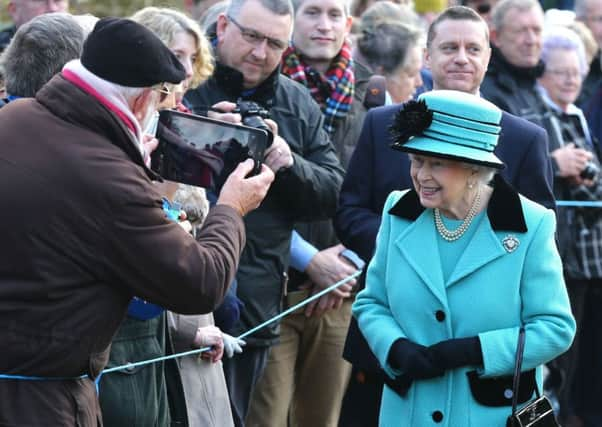Queen's remarkable 65th anniversary tinged with personal sadness


Today will mark the 65th anniversary of Her Majesty the Queen’s accession to the throne.
No other British monarch has achieved this distinction but the Queen does not regard the occasion as one for celebration because 6 February is the anniversary of the death of her much loved father, King George VI. She contends, correctly, that her long reign is a consequence of her father’s early death at the age of 56 and thus not a matter of celebration.
Advertisement
Hide AdAdvertisement
Hide AdThe Queen had a very happy childhood. Andrew Marr notes in his much admired biography, The Diamond Queen: Elizabeth II and Her People, that the Duke of York was a warm and affectionate father, unlike his own father George V who was a very stern disciplinarian. The future George VI had a great sense of fun and liked cards and charades and mimicry and play-acting. These traits were shared by his two daughters. William Shawcross, the official biographer of Queen Elizabeth, the Queen Mother, draws our attention to a note which the Duchess of York wrote to her husband in the event of her death. She reminded him ‘not to ridicule your children or laugh at them. When they say funny things it is usually quite innocent … always try & talk very quietly to children … Remember how your father, by shouting at you, & making you feel uncomfortable, lost all your real affection. None of his sons are his friends …’
One suspects the advice was unnecessary. The Duke did not laugh at his children but with them and he and his daughters were genuinely friends.
On 31 January 1952 King George went to London airport to see Princess Elizabeth and Prince Phillip off on their long-planned tour of east Africa, Australia and New Zealand. In Kenya, after a day spent at Treetops, on 6 February Prince Philip broke the news to the new Queen that her father had died in his sleep.
Those were days when public displays of emotion were much frowned upon. Bereavement was greeted with a stiff upper which went a long way to concealing private grief. The new Monarch almost immediately started to write letters to apologize for cancelling the remainder of the Royal tour. Her cousin Lady Pamela Mountbatten went to comfort her and recalled: In her usual extraordinary way … she was thinking about what everyone else was having to do. Typically, she said, “Oh thank you. But I am so sorry it means we have to go back to England and it’s upsetting everybody’s plan.”’
Advertisement
Hide AdAdvertisement
Hide AdThe Queen returned to home to be proclaimed ‘Queen Elizabeth the Second, by the Grace of God, Queen of this Realm and all Her other Realms and Territories, Head of the Commonwealth, Defender of the Faith’ on 8 February .
In her first speech as Monarch, she said: ‘By the sudden death of my dear father I am called to assume the duties and responsibilities of sovereignty. My heart is too full for me to say more to you today than I shall always work, as my father did throughout his reign, to advance the happiness and prosperity of my peoples, spread as they are all the world over.’
In December 1952 the Queen began her Christmas broadcast by observing: ‘Each Christmas, at this time, my beloved father broadcast a message to his people in all parts of the world. Today I am doing this to you, who are now my people. As he used to do, I am speaking to you from my own home, where I am spending Christmas with my family’.
When the Queen unveiled a memorial to her father in the Mall on 21 October 1955, she praised his wartime steadfastness, his ‘friendliness and simplicity’, his ‘warm and friendly sympathies’, his unassuming humanity and pointed out that he had sacrificed himself during bouts of serious illness: ‘his courage endeared himself to everybody’.
Advertisement
Hide AdAdvertisement
Hide AdThe Queen often spends Accession Day privately at Sandringham. King Geoge VI died there and his coffin rested in the church of St Mary Magdalene there for two days before it was taken to London for his lying in state.
6 February is a day that the Queen attends to her paperwork but spends largely in contemplation. She is not out and about that day. Royal gun salutes will be staged in London, as is the tradition. A 41-gun salute will be fired by the King’s Troop Royal Horse Artillery in Green Park at noon,
The Band of the Royal Artillery will play a selection of celebratory music close to the firing position, and 89 horses will pull six First World War-era 13- pounder field guns into position in the park. A 62-gun salute by the Honourable Artillery Company will be fired at the Tower of London at 1pm.